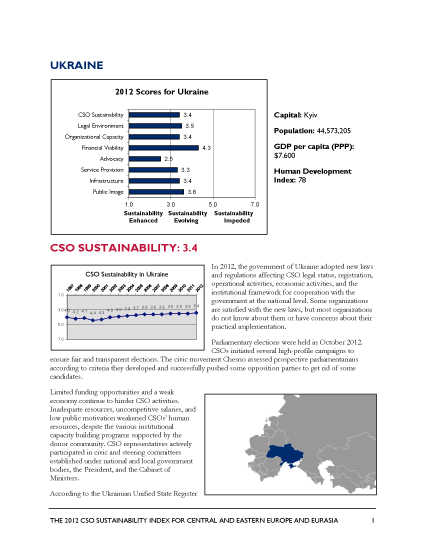CSO SUSTAINABILITY: 3.4
In 2012, the government of Ukraine adopted new laws and regulations affecting CSO legal status, registration, operational activities, economic activities, and the institutional framework for cooperation with the government at the national level. Some organizations are satisfied with the new laws, but most organizations do not know about them or have concerns about their practical implementation.
Parliamentary elections were held in October 2012. CSOs initiated several high-profile campaigns to ensure fair and transparent elections. The civic movement Chesno assessed prospective parliamentarians according to criteria they developed and successfully pushed some opposition parties to get rid of some candidates.
Limited funding opportunities and a weak economy continue to hinder CSO activities. Inadequate resources, uncompetitive salaries, and low public motivation weakened CSOs’ human resources, despite the various institutional capacity building programs supported by the donor community. CSO representatives actively participated in civic and steering committees established under national and local government bodies, the President, and the Cabinet of Ministers.
According to the Ukrainian Unified State Register of Companies and Organizations, 71,767 public associations and 13,475 charitable foundations and organizations were registered at the beginning of 2012, including international, national, and local organizations, as well as their branch offices, sub-offices, and separate units that are not registered as separate legal entities. This represents an increase of 6 percent and 5 percent respectively since the beginning of 2011.








Comment
Make a general inquiry or suggest an improvement.